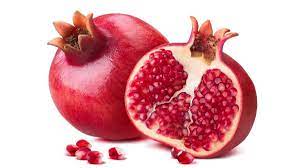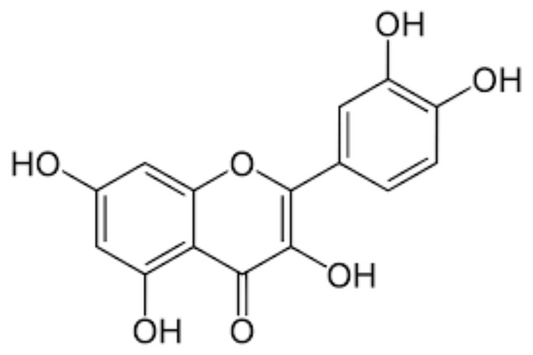Vitamin A is a fat-soluble vitamin known for its importance in various aspects of health, particularly vision and immune function.
- Vision Support: Reduced Risk of Night Blindness: Adequate Vitamin A intake can reduce the risk of night blindness by up to 50% (Source: The Lancet).
- Immune Function: Enhanced Immunity: Vitamin A supports immune function by increasing the production of white blood cells, improving the body's defense against infections (Source: Journal of Leukocyte Biology).
- Skin Health: Improved Skin Quality: Vitamin A plays a role in skin health, promoting cell turnover and potentially reducing signs of aging, such as wrinkles (Source: Dermato-Endocrinology).
- Cancer Prevention: Lower Cancer Risk: Adequate Vitamin A intake may reduce the risk of certain cancers, including lung and bladder cancer, by up to 27% (Source: American Journal of Epidemiology).
- Bone Health: Bone Density Support: Vitamin A contributes to bone health by aiding in the production of osteoblasts, cells responsible for bone formation (Source: The Journal of Nutrition).
- Reproductive Health: Healthy Pregnancy: Vitamin A is essential for fetal development, and deficiency can lead to birth defects. Adequate intake supports a healthy pregnancy (Source: The Cochrane Database of Systematic Reviews).
- Immunity in Children: Reduced Childhood Mortality: In children, Vitamin A supplementation can reduce mortality from diseases like measles and diarrhea by up to 23% (Source: The New England Journal of Medicine).
- Hair Health: Hair Growth: Adequate Vitamin A levels are important for hair growth and overall hair health (Source: Dermatology Practical & Conceptual).
- Mucous Membrane Health: Mucosal Protection: Vitamin A supports the health of mucous membranes, including those in the respiratory and digestive systems, potentially reducing the risk of infections (Source: The Journal of Nutrition).
- Skin Conditions: Acne Management: Topical Vitamin A derivatives, like retinoids, are effective in managing acne and may reduce acne lesions by up to 64% (Source: JAMA Dermatology).
The Role of Vitamin A in Fighting Age-Related Problems
Vitamin A, also known as retinol, is a fat-soluble vitamin that plays a crucial role in maintaining a healthy body. It is important for proper functioning of many organs, including the brain, skin, heart, kidneys, lungs, and eyes. Additionally, it has potent antioxidant properties that help fight inflammation and prevent oxidative damage to cells, which can contribute to the aging process.
One of the most well-known functions of vitamin A is its role in vision. The vitamin is essential for the formation of rhodopsin, a protein in the retina that enables the eye to detect light. Vitamin A deficiency can lead to night blindness and even permanent blindness in severe cases.1
Beyond vision, vitamin A also plays an important role in maintaining healthy skin. It helps regulate skin cell growth and turnover, which is important for preventing acne and promoting wound healing. Vitamin A is also a key ingredient in many anti-aging skincare products, as it can help reduce the appearance of fine lines and wrinkles and improve skin texture. A study was conducted to see if a lotion containing vitamin A could improve the appearance of naturally aged skin. The study involved 36 elderly participants living in two senior citizen facilities, and the lotion was applied up to three times a week on one arm for 24 weeks while the other arm received a placebo lotion. After 24 weeks, the skin that received the vitamin A lotion showed significant improvement in fine wrinkling compared to the skin that received the placebo lotion. The vitamin A lotion also increased glycosaminoglycan expression and collagen production, which are responsible for wrinkle effacement. This suggests that vitamin A can improve the appearance of naturally aged skin and help protect it from injury and ulcer formation. 2
In addition to its cosmetic benefits, vitamin A also has a number of health benefits for the body. It helps regulate gene expression and supports the immune system by promoting the production of white blood cells.3,4 It is also important for maintaining healthy bones, as it helps regulate bone growth and remodeling. Vitamin A can influence different stages of osteogenesis, the process of bone formation, by enhancing early osteoblastic differentiation and inhibiting bone mineralization. However, adequate vitamin A intake through food or supplements can maintain healthy bones. Provitamin A, such as carotene and β-cryptoxanthin, may also protect bones by promoting osteogenesis and inhibiting the differentiation and maturation of osteoclasts.5
As an antioxidant, vitamin A helps protect the body from the damaging effects of free radicals. These unstable molecules can cause oxidative stress, which can contribute to a number of health problems, including heart disease, cancer, and neurological disorders. By neutralizing free radicals, vitamin A can help prevent cellular damage and slow down the aging process.6,7
Food sources of vitamin A include liver, eggs, dairy products, and colourful fruits and vegetables such as carrots, sweet potatoes, and spinach. Vegetarians and vegans can also get vitamin A from plant-based sources such as fortified cereals, tofu, and leafy greens.
In conclusion, vitamin A plays an important role in maintaining a healthy body and preventing the aging process. Its benefits extend beyond vision and skin health to include immune system support, bone health, and antioxidant activity. By incorporating vitamin A-rich foods into your diet, you can help support optimal health and slow down the aging process.
References:
- Xu Y, Shan Y, Lin X, Miao Q, Lou L, Wang Y, Ye J. Global patterns in vision loss burden due to vitamin A deficiency from 1990 to 2017. Public Health Nutrition. 2021 Dec;24(17):5786-94.
- Kafi R, Kwak HS, Schumacher WE, Cho S, Hanft VN, Hamilton TA, King AL, Neal JD, Varani J, Fisher GJ, Voorhees JJ. Improvement of naturally aged skin with vitamin A (retinol). Archives of dermatology. 2007 May 1;143(5):606-12.
- McGrane MM. Vitamin A regulation of gene expression: molecular mechanism of a prototype gene. The Journal of nutritional biochemistry. 2007 Aug 1;18(8):497-508.
- Stephensen CB. Vitamin A, infection, and immune function. Annual review of nutrition. 2001 Jul;21(1):167-92.
- Yee MM, Chin KY, Ima-Nirwana S, Wong SK. Vitamin A and bone health: a review on current evidence. Molecules. 2021 Mar 21;26(6):1757.
- Petiz LL, Kunzler A, Bortolin RC, Gasparotto J, Matté C, Moreira JC, Gelain DP. Role of vitamin A oral supplementation on oxidative stress and inflammatory response in the liver of trained rats. Applied Physiology, Nutrition, and Metabolism. 2017;42(11):1192-200.
- Burzyński J, Fichna J, Tarasiuk A. Putative molecular targets for vitamin A in neutralizing oxidative stress in acute and chronic pancreatitis—a systematic review. Naunyn-Schmiedeberg's Archives of Pharmacology. 2023 Feb 27:1-0.




